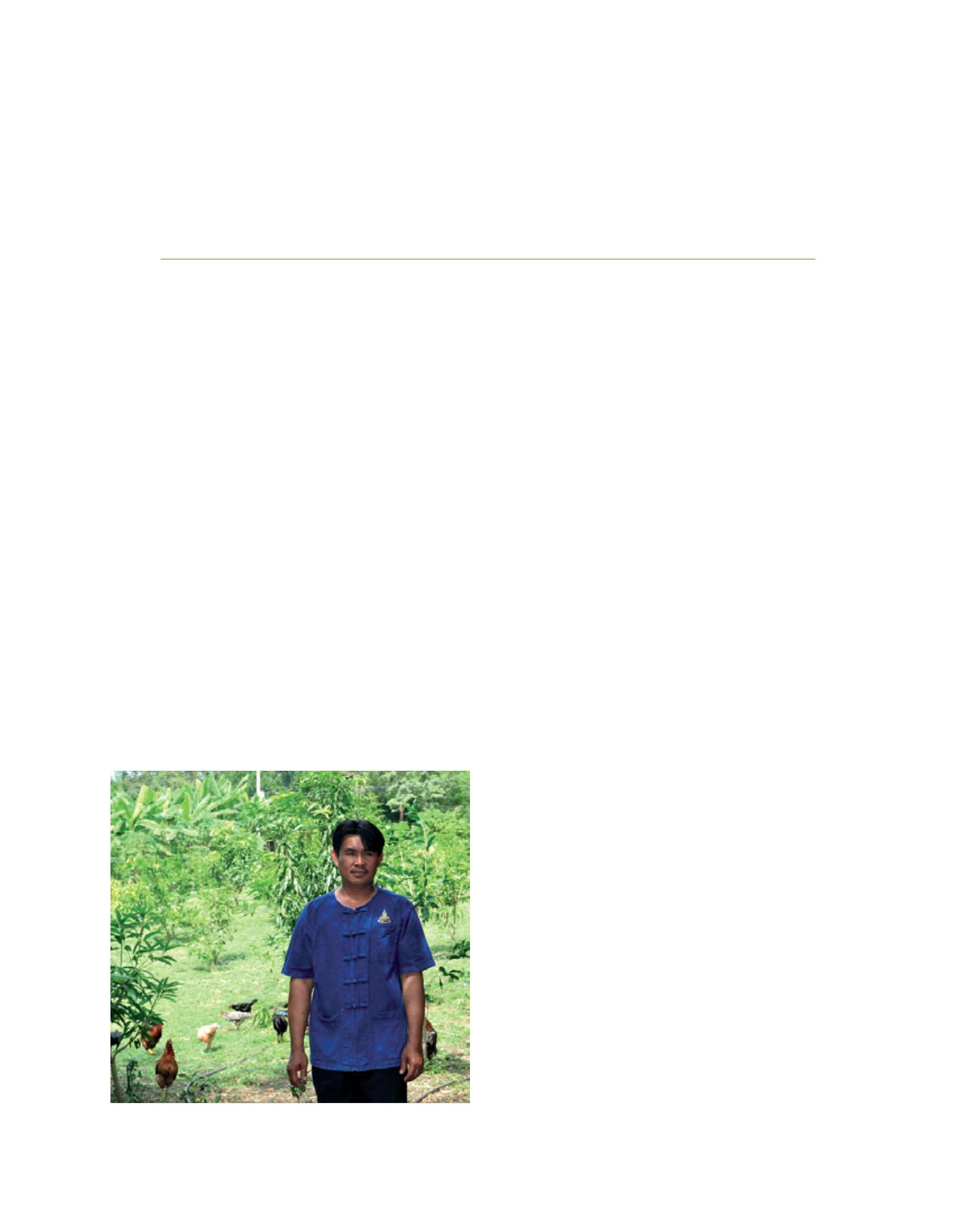

[
] 248
Thailand initiatives for strengthening
family farming towards food security, farmer
well-being and sustainable development
Agricultural Extension Research and Development Division and Planning Division,
Department of Agricultural Extension Ministry of Agriculture and Cooperatives: Kingdom of Thailand
T
hailand’s development has been generally based
on agricultural production, which is mainly
supported by smallholders. Agricultural produc-
tion continues to be the basis of the livelihood of the
majority of Thailand’s 65 million people, about one-
third of whom are presently engaged in agriculture.
Although agriculture’s share of gross domestic product
in 2013 was only 8.3 per cent and has decreased
substantially, it still accounted for 20.2 per cent of the
total value of exports, including agricultural products
and agromanufacturing products.
Of the country’s total land area of 321 million rai (about
51.4 million hectares), 115 million rai or 36 per cent is
under agriculture with a farm labour force of 39.1 per cent.
Therefore, agriculture is still of great importance to the
Thai economy, since the majority of the population still
earn their living from it in terms of a key source of income
and a base for value-added activities.
According to farmer registration, in 2013 there were
7,074,355 farm households in Thailand, of which the
majority are small-scale farmers who hold an average 3
hectares of land. These farmers not only face the chal-
lenges of accessibility to capital, agricultural technologies
and inadequate land for farming; they also have to cope
with sudden natural disasters such as flood, drought and
unusual rain as well as soil erosion, disease epidemics and
outbreaks of insect pests. Agricultural chemicals are still
used for high yield production, while natural resources
have been depleted and the environment has been
degraded, causing climate change. Therefore, production
is effected in terms of damaged products, lower produc-
tion, inadequate food intake, insufficient income for family
consumption, and malnutrition. These also have an impact
on food security, poverty, migration and the use of existing
resources. Furthermore, the multi-polar economy and the
integration of the Association of Southeast Asian Nations
community in 2015 will affect the competitiveness of
small-scale farmers.
In order to cope with such phenomena, Thailand has
adopted His Majesty the King’s Philosophy of ‘sufficiency
economy’ as its guiding principle since the Ninth National
Economic and Social Development Plan (2002-2006). In
order to achieve sustainable development with a people-
centred approach and pave the way towards a good
balance between environmentally friendly production and
consumption, it is necessary to enhance the country’s self-
resilience by strengthening its economic and social capital
and improving risk management to effectively handle inter-
nal and external uncertainties.
Sufficiency economy is a philosophy that stresses the
middle path as an overriding principle for appropri-
ate conduct by the populace at all levels. This applies to
conduct at the level of families and communities, as well
as the level of national development and administration
so as to modernize in line with the forces of globalization.
The strengthening of the agricultural sector and the
security of food and energy are key development strate-
gies to ensure sustainable agriculture from the family level
up to the national level. Thailand, through the Ministry
of Agriculture and Cooperatives, has laid down a Food
Outstanding farmer, Mr Patphong Monkolkanjanakhun, received the national
award in 2014 for integrated farming by practicing the ‘New Theory’ agriculture
Image: MOAC – Thailand
D
eep
R
oots
















